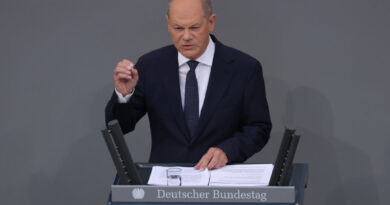Queensland Farmers Share Their Struggle to Preserve Livelihood in Face of Solar Farm Protests
A group of Queensland farmers are concerned that a 9,000-acre solar project could potentially harm their properties and fertile farmland in the region.
These farmers in Banana Shire, Queensland, have embarked on a fight against the proposed solar project to safeguard their livelihoods and families. At a recent inquiry hearing, farmers Cedric Creed and Therese Creed highlighted their six-year opposition to the solar farm and the negative consequences it could have on the fertile farmland in the area.
Representing a group of 10 landholders with properties adjacent to the solar plant, the couple alleged that the project received approval without undergoing proper environmental assessments and regulatory processes.
In particular, Therese Creed emphasized that renewable energy projects in the region, like the aforementioned solar farm, were not subject to stringent environmental regulations.
She pointed out, “They are classified as code assessable rather than impact assessable, which allows them to bypass much of the legislation.”
The farmers also claimed that they were not consulted about the project and accused its consulting companies of employing questionable tactics to get the solar farm project approved.
Cedric Creed mentioned, “The misinformation used by these companies to push through their projects is astonishing.”
He added, “Most of the research is done on a computer desktop, so they’re doing it in air-conditioned comfort. Often, they don’t even visit the site to assess the situation.”
Despite reaching out to authorities over the course of six years to raise concerns about the solar farm’s impact, the farmers received no satisfactory responses.
According to Cedric Creed, the ongoing struggle has taken a toll on their mental and financial well-being. He expressed, “No one seems to care about our mental health, and we are all suffering as a result. We were forced into this fight to protect our livelihoods and families.”
Therese Creed voiced concerns about the use of toxic chemicals in manufacturing solar panels and the potential risks of these chemicals seeping into surrounding farmland once the panels are installed.
She highlighted the toxic chemicals involved in the production of solar panels and questioned the government’s decision to prioritize renewable energy over food production.
The farmers suggested nuclear power as a superior alternative for Australia’s energy transition, emphasizing its cleanliness and minimal impact on prime food-producing land.
Therese Creed even mentioned a conversation with an American expert who indicated that newer nuclear power stations in France and Japan are finding innovative ways to reduce radioactive waste.
She pointed out, “When considering the waste from millions of solar panels and wind turbines, which cannot be disposed of in ordinary landfills due to their toxicity, it appears that we face a greater waste disposal challenge with renewables than with nuclear power.”



